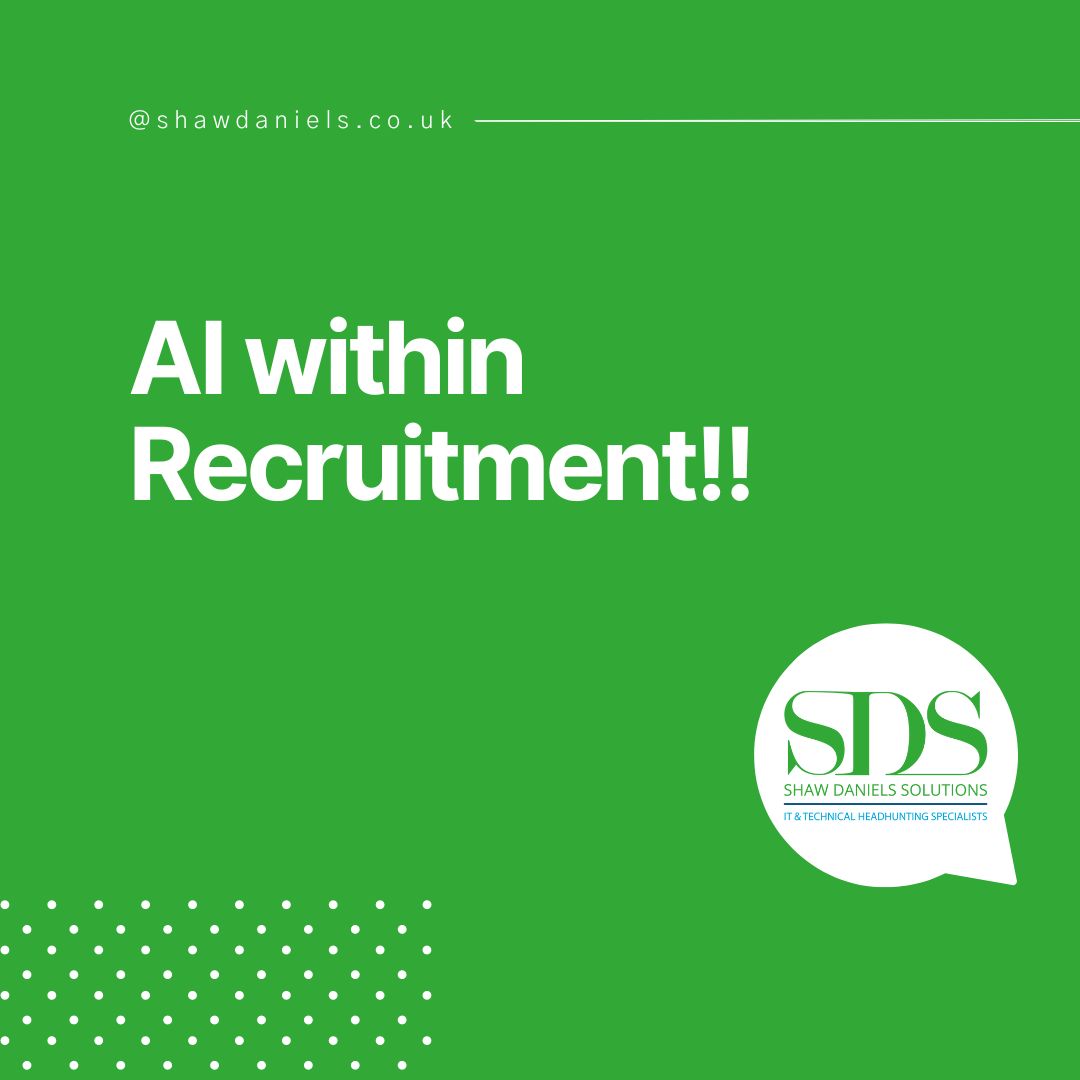
AI is transforming the recruitment process by automating various tasks, enhancing efficiency, and improving decision-making but do we need AI in the recruitment world?
This depends on various factors, including the goals of the organisation, the scale of hiring, and the specific challenges faced in the recruitment process.
However, AI can offer significant advantages that make it highly beneficial, and in some cases, essential, for modern recruitment.
Here’s a balanced view of the reasons why AI might be necessary and considerations for its use:
- AI can automatically review and screen resumes by parsing them for relevant keywords, skills, experience, and qualifications that match the job description. This reduces the time recruiters spend manually reviewing each resume and ensures that only the most relevant candidates are shortlisted.
- AI tools can help in identifying potential candidates by scanning online job boards, social media, and professional networks. These tools can also predict which candidates are most likely to be interested in a new job based on their online activity and profiles.
- AI can be integrated into video interviewing platforms to assess candidates’ verbal and non-verbal cues, such as tone of voice, facial expressions, and body language. These insights provide an additional layer of evaluation beyond what is available from traditional interviews.
- AI can automate the coordination of interviews by syncing calendars between candidates and interviewers. This saves time and reduces the likelihood of scheduling conflicts.
Why AI is Beneficial in Recruitment:
- Efficiency and Speed:
- High-Volume Hiring: For companies that receive thousands of applications for a single position or need to fill many roles quickly, AI can dramatically speed up the screening process by automating resume reviews and candidate sourcing.
- Automation of Repetitive Tasks: AI can handle time-consuming tasks like scheduling interviews, responding to candidate inquiries, and pre-screening applicants, allowing recruiters to focus on more strategic aspects of hiring.
- Enhanced Candidate Experience:
- Personalisation: AI can tailor communications and interactions to individual candidates, providing a more personalised and engaging experience. This can improve candidates’ perception of the company and increase their likelihood of accepting job offers.
- 24/7 Availability: AI-powered chatbots can assist candidates outside of regular business hours, answering questions and providing updates, which can enhance the overall candidate experience.
- Data-Driven Decision Making:
- Objective Analysis: AI can analyse large datasets to identify patterns and insights that might not be apparent through human analysis. This can help in making more informed, objective hiring decisions based on data rather than gut feelings.
- Predictive Analytics: AI can predict which candidates are most likely to succeed in a role, reducing the risk of bad hires and improving employee retention.
- Bias Reduction:
- Minimizing Human Bias: AI can be programmed to focus on objective criteria, potentially reducing unconscious bias that might occur in human decision-making. This can help promote diversity and inclusivity in hiring practices.
- Standardisation: AI can ensure that all candidates are assessed using the same criteria, leading to a more consistent and fair recruitment process.
- Scalability:
- Handling Growth: As organisations grow, their hiring needs can quickly outpace the capacity of traditional recruitment methods. AI can scale with the organisation, managing larger applicant pools and more complex hiring processes without requiring a proportional increase in resources.
While AI offers many benefits in recruitment, there are also challenges and ethical considerations:
Challenges and Considerations:
- Bias in AI Systems:
- Training Data: AI systems are only as good as the data they are trained on. If the data reflects existing biases, the AI can perpetuate or even amplify those biases. Continuous monitoring and updating of AI systems are necessary to ensure fairness.
- Ethical Concerns: The use of AI in recruitment raises ethical questions, particularly around transparency, privacy, and the potential for discrimination. Organisations must be mindful of these issues and implement AI responsibly.
- Loss of Human Touch:
- Candidate Relations: Recruitment is not just about matching skills to job descriptions; it’s also about building relationships and understanding the nuances of individual candidates. Over-reliance on AI could lead to a more impersonal recruitment process, potentially alienating candidates.
- Complex Decision-Making: Some aspects of hiring, such as cultural fit or leadership potential, are difficult to quantify and might be better assessed by human recruiters.
- Implementation Costs:
- Initial Investment: Implementing AI in recruitment can require a significant upfront investment in technology and training. Small organisations with limited budgets might find it challenging to justify these costs.
- Integration with Existing Systems: AI tools need to be integrated with existing HR and recruitment systems, which can be complex and time-consuming.
- Regulatory and Compliance Issues:
- Legal Considerations: As AI becomes more involved in recruitment, there may be legal implications related to data privacy, discrimination, and transparency. Organisations need to ensure they comply with all relevant laws and regulations.
Do We Need AI in Recruitment?
Conclusion:
AI is not an absolute necessity for all recruitment scenarios, but it offers substantial advantages that make it a valuable tool in many contexts. Organisations should consider their specific needs, resources, and goals when deciding whether to implement AI in their recruitment processes. When used effectively and responsibly, AI can significantly enhance the recruitment process, making it faster, fairer, and more data-driven.

